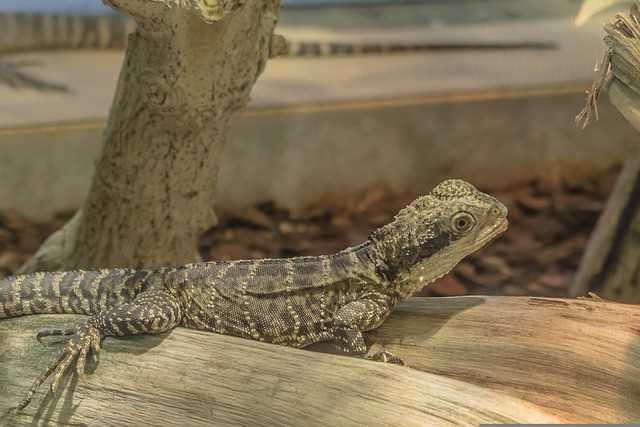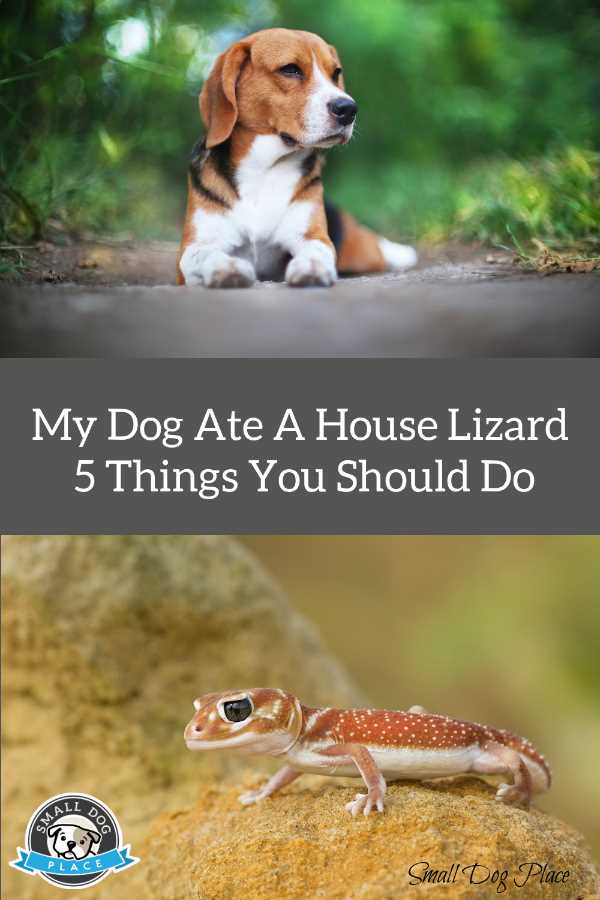- Small Dog Place Home
- Lifestyle
- My Dog Ate a House Lizard
My Dog Ate A House Lizard!
My Dog Ate a House Lizard: If This Happens to your: 5 Things You Should Do
It’s safe to say that most owners are concerned after discovering that their dogs have eaten a lizard.
This isn't entirely uncommon, though. After all, dogs tend to put things in their mouths that they aren't supposed to.
But what is there to be concerned about?
The answer to this will differ depending on the type of gecko or lizard your dog has eaten, something you’ll unlikely have the answer to unless you watch your dog eat it.

3 Areas of Concern if Your Dog Ate a House Lizard
Here are three things that may cause your dog to get sick from eating a lizard, along with their symptoms.
Salmonella
Salmonella is a bacteria usually carried on some lizard's skin or guts.
This bacteria can cause diarrhea and vomiting.
Poisoning
While rarer, there are some lizard species out there that are poisonous.
These lizards are commonly found in desert regions and bite to inject their poison, so if you notice bleeding or swelling in your dog, stay alert.
Symptoms include:
- Lethargy
- Dizziness
- Weakness
- Vomiting
- Glassy eyes
- Difficulty breathing
Parasites
Lizards commonly carry intestinal parasites like Roundworm, Hookworm, and Pinworm, which can be given to your dog.
These parasites can cause many symptoms if they develop in your dog.
Symptoms include:
- Vomiting
- Diarrhea
- Swollen abdomen
- Dehydration
- Lethargy
- Nutritional deficiencies
- Weight loss
These symptoms aren't likely to show right when your dog eats the lizard but will present themselves over time.
5 Things to Do if Your Dog Ate a House Lizard
Now, if you notice these symptoms in your dog, there are five things you should do.
1. Monitor Your Dogs Symptoms
The first thing you'll need to do is monitor your dog's symptoms.
As we've said before, in most cases, you shouldn't have to worry too much, and the worst thing that'll likely happen is that your dog will simply barf up the lizard.
However, you should still monitor your dog's symptoms. The moment you notice any concerning symptoms, get them to the vet, stat!
2 Keep Them Hydrated and Fed
If your dog has a light case of vomiting or throws up the lizard, a good thing you should do is ensure they're well-fed and hydrated after the incident.
However, if they keep throwing up, contact your vet as soon as possible, as something more serious may be afflicting them.
3. Contact Your Vet
Your vet should always be contacted the second you notice your dog's symptoms worsening.
They'll be essential to figuring out what's really wrong with your dog, especially if you don't know that your dog has eaten a lizard.
They can even help provide the right medication for the problem, whether it be fluids, deworming medication, probiotics, or vomiting induction.
Remember, you should never self-diagnose or self-medicate your dog without talking to a professional. Your guesses will most likely not lead to the right culprit or solution for your dog.
4. Get In Touch With The Pet Poison Hotline (If Needed)
Contact the Pet Poison Hotline immediately if you or your vet believe that the lizard your dog swallowed was poisonous.
It's actually recommended that you do this if your dog's gotten sick and you're unsure of what your dog has eaten or how to approach it.
5. Attempt To Prevent This From Happening Again
It's impossible to 100% prevent this from happening again.
However, there are ways to attempt to prevent it from happening.
- Keep your dog on a leash or harness while out walking or in environments outside your home with wild animals like lizards.
- Be aware of your dog's location at all times, even when they're in the backyard.
- Consider reptile repellent to minimize lizards coming into your yard.
- Teach your dog the "Leave it" command.
Summary
It's normal to be
concerned when your dog swallows anything they aren't supposed to, especially
when it's a wild animal like a reptile.
The symptoms your dogs will have will depend on the type of lizard they've swallowed.
However, there are three things a lizard can transfer to your dog that will lead to sickness.
- Salmonella
- Poisoning
- Parasites
You should always do five things if you suspect your dog has eaten a lizard.
- Monitor their symptoms: if they get worse, a vet should always be contacted.
- Keep Them Hydrated and Fed: This is especially the case if they've been vomiting or having diarrhea.
- Contact your vet: This should be your first reaction if symptoms worsen. Your vet can help pinpoint the problem and provide medications to fix it.
- Get in touch with the Pet Poison Hotline: If you suspect your dog has swallowed a poisonous lizard.
- Prevent it from happening again: Even though it's impossible to stop your dog from eating lizards, lowering their chances of doing it can lower the likelihood of them getting sick again.
Do you keep dogs and lizards as pets? You might want to check out our article about Dogs and Bearded Dragons
Pin for Future Reference
About Janice (author and voice behind this site)
Having lived with dogs and cats most of her life, Janice served as a veterinary technician for ten years in Maryland and twelve years as a Shih Tzu dog breeder in Ohio.
Her education includes undergraduate degrees in Psychology with a minor in biology, Early Childhood Education, and Nursing, and a master's in Mental Health Counseling.
She is a lifelong learner, a dog lover, and passionate about the welfare of animals. Her favorite breed for over 50 years has been the Shih Tzu, but she has also lived with Poodles, Maltese, Yorkshire Terriers, Beagles, English Bulldogs, Carin Terriers, and a Cocker Spaniel.
When not writing, reading, and researching dog-related topics, she likes to spend time with her eight Shih Tzu dogs, husband, and family, as well as knitting and crocheting. She is also the voice behind Miracle Shih Tzu and Smart-Knit-Crocheting
Does This Article Deserve Your Thumbs Up?
We always appreciate your support and encouragement. Your thumbs up means so much to us. Please like this article.
If you find this page or any page on Small Dog Place Helpful, or useful in anyway, I'd love it if you would click the small heart found on the bottom right of each page.
You can also share or bookmark this page -- just click on the:

Free Monthly Newsletter
Sign Up for Our Free Newsletter and get our Free Gift to You.
my E-book, The Top 10 Mistakes People Make When Choosing a Dog (and how to avoid them)


